Sarah Everard: Hundreds at Cardiff protest after death
- Published
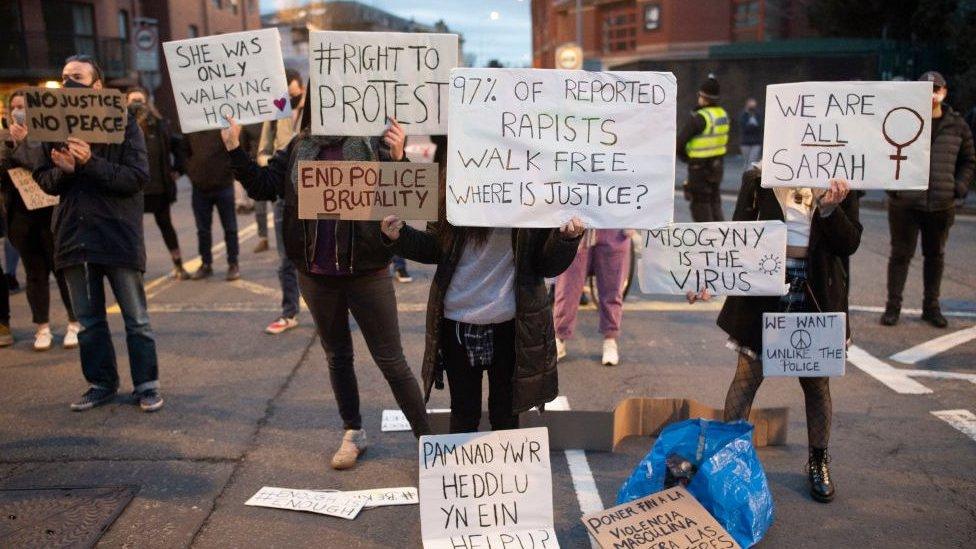
Protesters in Cardiff held signs calling for changes following the death of Sarah Everard
Hundreds of people have attended a protest outside a Cardiff police station following the death of Sarah Everard.
The 33-year-old went missing while walking home from a friend's house on 3 March in south London.
Her remains were later found in a woodland in Kent and a Metropolitan Police officer has been charged with her murder and kidnap.
Demonstrators in Cardiff on Monday were also campaigning on other issues.
These included Black Lives Matter, the death of Mohamud Mohammed Hassan, and the right to protest following the introduction of the UK government's Police and Crime Bill.
Banners supporting different causes were on show in the crowd and chants of "Whose Streets? Our Streets" and "Black Lives Matter" could be heard.
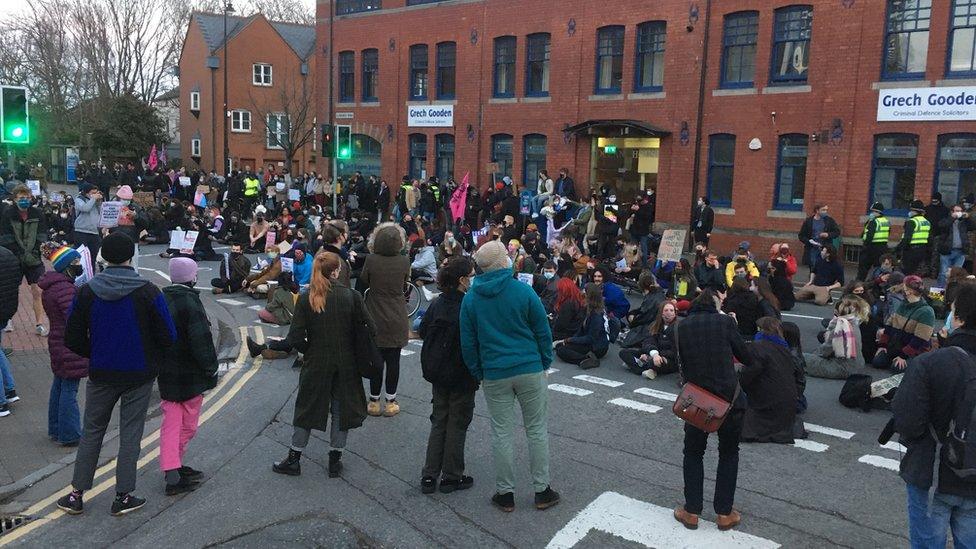
People were also protesting over the death of Mahmoud Hassan who died after being released from police custody
Earlier, Wales's first minister said no-one could be "anything but disturbed" by scenes of policing at a vigil in London in memory of Sarah Everard.
Mark Drakeford said it was "particularly" the case because of the "allegation that a member of the Metropolitan Police had carried out a murder of somebody".
The Met has faced widespread criticism for its handling of the gathering.
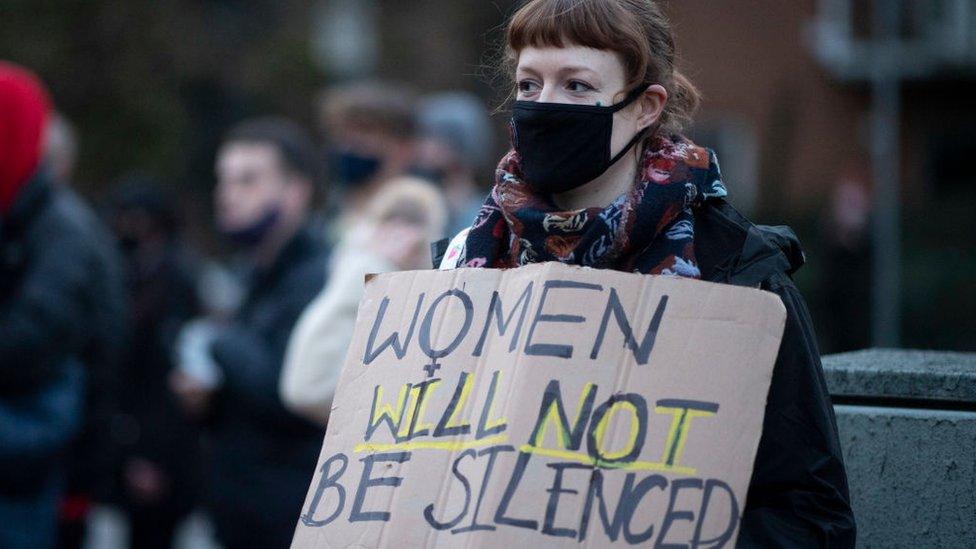
Hundreds attended the demonstration outside Cardiff Bay police station on Monday evening
However, the head of the force has defended how officers responded.
Hundreds of people gathered on London's Clapham Common on Saturday to lay flowers and pay their respects to Ms Everard, who was found dead a week after she disappeared on her way home in south London.
Police officers later handcuffed and removed a number of women from the gathering, arresting four people for public order and Covid offences.
Mark Drakeford said the police's response to the vigil in London had given rise to "real concerns"
In response to the scenes in London, Mr Drakeford said there was a "contrast" to the way events were handled in Wales.
"Here in Wales I think our police have always managed to respond to such events in a way that is sensitive to them, proportionate to what is going on, and allows people even in the extraordinary times we are in to mark something very significant in their lives," he said.
"In London, nobody could be anything but disturbed to see the scenes we've seen emerging, particularly as the precipitating event is the allegation that a member of the Metropolitan Police had carried out a murder of somebody.
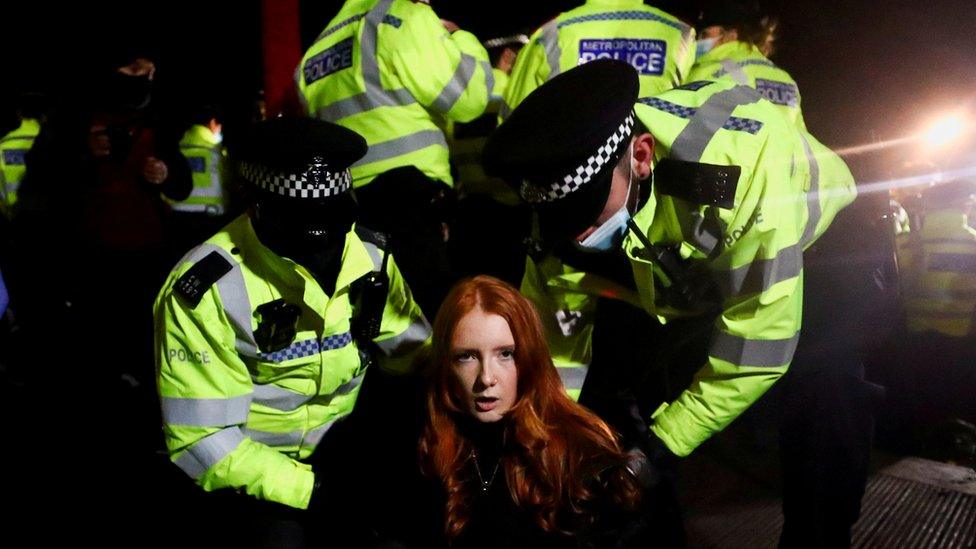
Images of Patsy Stevenson being detained by police at the vigil in London were shared widely
"To see the same police force respond to people who wanted to mark that in a way, that I think can only give rise for very real concern."
Ms Everard went missing while walking home from a friend's house on 3 March, with her body being found a week later in Kent.
Met Police officer Wayne Couzens, 48, has been charged with kidnap and murder.
Met Commissioner Dame Cressida Dick has said she will not resign over the protests.
"Quite rightly, as far as I can see, my team felt that this is now an unlawful gathering which poses a considerable risk to people's health," she said.
"I don't think anybody who was not in the operation can actually pass a detailed comment on the rightness and wrongness... This is fiendishly difficult policing."
Organisers said they cancelled a vigil originally planned at Clapham Common because police did not "constructively engage" with logistics
Mr Drakeford also raised concerns about the UK government's policing bill, and its provisions on protests.
"This is not the moment at all for the UK government to be seeking to cut back on people's ability to get together when conditions allow and express their concerns about the way that things happen in our society," he said.
Opposition MPs, including Labour and Plaid Cymru, plan to vote against the bill. It has been defended by Prime Minister Boris Johnson, who said it was a "very sensible package of measures".
In common with the other three UK nations, coronavirus laws set in Wales by the Welsh Government restrict large gatherings.
No more than four people from two households can gather outside.
Earlier this year Bianca Ali faced a £500 fine for breaching Covid rules after allegedly organising a protest in Cardiff over the death of a man who died after he was released from police custody.
His death prompted several days of protest. Ms Ali is understood to be contesting the fine.
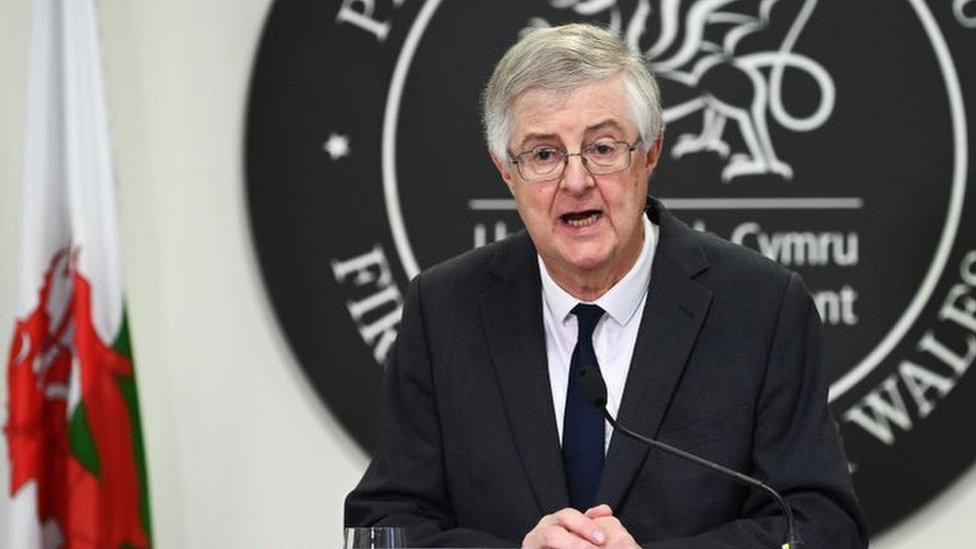
Mark Drakeford said he had "cause for concern" by the police response
In response to a question on the Welsh Government views' about protests under the regulations, and whether they can be lawfully held, a spokesperson told BBC Wales: "We are in the middle of public health emergency.
"For everyone wishing to hold peaceful vigils, we would ask people to follow the rules which have protected us all from coronavirus and consider holding online events until larger gatherings can be held."
- Published15 March 2021
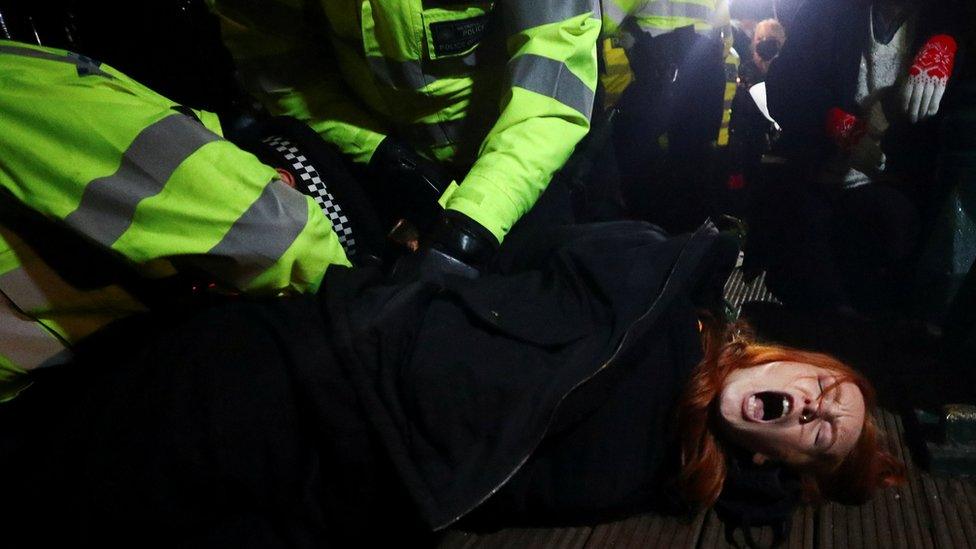
- Published14 March 2021